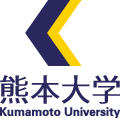- HOME
- Laboratory Goals
Laboratory Goals
Educational Philosophy
We will continue to grow and develop ourselves through friendly competition with students and other researchers, breaking new ground so that we can always have their backs as they continue to run and study. I feel invigorated when I come to Mukunoki Lab.Our goal is to create an environment in which students can say that they are energized when they come to our laboratory. Basically, we have a “nurture” education policy for fourth-year students and a “train” education policy for master’s degree students and above.We train students every day so that they will have the mental strength to do well on the job hunting front or even after entering the workforce.To this end, Mukunoki plants four seeds in the fourth year students and nurtures four “ki” from them.
- H:
- Harmoney(cooperation)
- O:
- Optimism(positive optimism)
- P:
- Passion
- E:
- Encouragement/Enjoyment
- Genki:
- Without energy, you cannot do what you want to do.
- Motivation:
- If you are not truly motivated, you will not achieve your goals.
- Perseverance:
- Without perseverance, you will not make it big.
- Yuuki:
- Without courage, you can neither discover new things nor achieve personal satisfaction.
Research Goals
4th year students will be able to present their research results at the JSCE Western Branch Research Presentation Meeting at the end of the academic year.
Master’s and above students are expected to participate in at least one symposium-level conference in Japan or abroad by the time of graduation and present their research results.
M2 students are expected to present their research at either JSCE or JGSE and win an award for best presentation.
Achieve results that will enable the student to write and submit one article per year to an international journal.
Master’s thesis should be written and submitted to JSCE.
Achieve results that will enable the student to submit a paper to an international conference during his/her master’s degree.
Educational Goals
We aim to produce the following kind of human resources so that their research life in the Mukunoki Laboratory will be a starting point for their future life.
- Human resources who have the ability to look at the site of a problem (the current situation) and see what the problem is at its sharpest point.
- Human resources who can freely use the knowledge to solve the problem.
- Human resources who are able to put their wisdom into practice.
- People who are able to work in harmony with their collaborators, while remaining committed to the work they are involved in.
- Human resources who can fulfill their accountability according to the needs of others.
